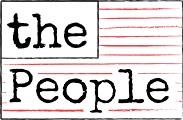Civics U: What Should A Citizen Know?
A number of states have recently enacted or amended their education laws and regulations to strengthen or revise their civics education curriculum content and standards. These new developments range from requiring civics education in specified grades to stipulating the content that is to be included in civics education classes.
And what content should be included in civics education curriculum? What is essential for a citizen to know? Various civics education curriculum materials and standards are used in schools. But another interesting resource that can be used as a guide is the U.S. naturalization test for new citizens. It represents core knowledge that a citizen should know. For immigrants to become a naturalized citizen of the U.S., they must pass a test in two areas: English and civics. The 2020 civics test consists of 20 questions drawn from a battery of 128 questions covering areas of government and history.
Here are 20 sample questions. You would need to answer at least 12 questions – 60% – correctly to pass the civics test.
AMERICAN GOVERNMENT
A: Principles of American Government
1. What is the form of government of the United States?
2. The U.S. Constitution starts with the words “We the People. What does “We the People” mean?
12. What is the economic system of the United States?*
B: System of Government
33. Who does a member of the House of Representatives represent?
34. What are two Cabinet-level positions?
35. Name one power that is only for the states.
36. What is the purpose of the 10th Amendment?
37. What are three rights of everyone living in the United States?
38. What are two examples of civic participation in the United States?
39. What is one way Americans can serve their country?
AMERICAN HISTORY
A: Colonial Period and Independence
73. The colonists came to America for many reasons. Name one.
74. Thomas Jefferson is famous for many things. Name one.
B: 1800s
90. What territory did the United States buy from France in 1803?
91. What did the Emancipation Proclamation do?
C: Recent American History and Other Important Historical Information
102. When did all women get the right to vote?
103. Why did the United States enter World War II?
104. Dwight Eisenhower is famous for many things. Name one.
105. Why did the United States enter the Korean War?
106. Martin Luther King, Jr. is famous for many things. Name one.
107. Name one American Indian tribe in the United States.
All 128 questions and the correct or preferred answers can be viewed HERE.
The naturalization test covers important core knowledge. But a full civics education curriculum can address even more past and current issues that reflect and shape the American system.
Here are just a few past developments that were “issues” when first proposed: income tax, free public education (the original colonies did not have), military draft; organized labor unions, dispensing with the gold standard, prohibition (of selling alcoholic beverages). And here are a few more recent and current issues: abortion, registration of fire arms, immigration and national borders, foreign ownership of land. (There are many more, of course.)
Such issues are rooted in social viewpoints and goals that become codified through governmental action as laws and regulations. And often differing viewpoints are based on differing assumptions and positions about the proper or desired role of government. Therefore, civics education and what a citizen needs to know include not only historic “facts”, but also how to analyze and address differing and even conflicting views and choices in light of historic practices and principles.
A Postscript.
In response to my previous article on “The ‘Negative’ Function of Government”, The People Executive Director Katie Fahey touched on an important point when she mentioned regulation, so I will add this clarification:
Government activity means regulation in some form, and this means controlling
people’s behavior in some way. So we do not have or believe in anarchy, but in
limited government, with an emphases, variously, either on ‘limited’ or on
‘government’.

